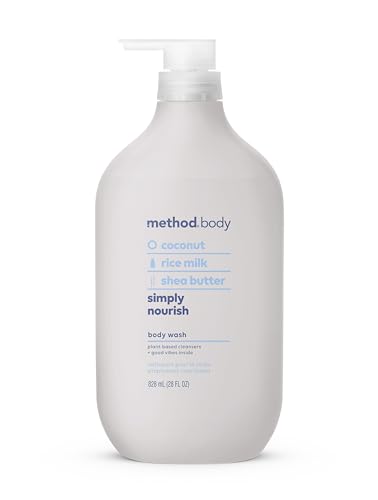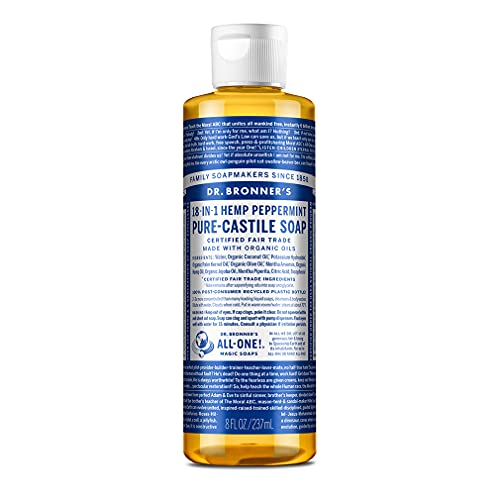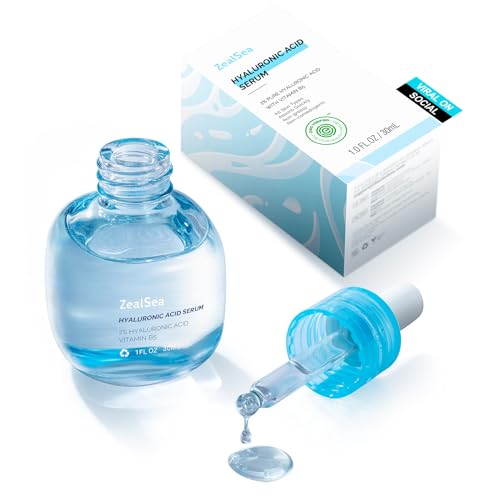
Wild & Organic Iodine Gummies - Immune Support with Zinc & Selenium, Vegan - 60 Pectin Gummies


Lactic Acid, L
High RiskLactic acid is an organic acid commonly used in cosmetics and skincare products as an exfoliant and pH regulator. It helps in improving skin texture and hydration by promoting the shedding of dead skin cells and enhancing moisture retention.
Sustai Insights
Lactic acid offers functional benefits as an effective exfoliant and moisturizer, contributing to improved skin appearance. However, it poses potential risks, including skin irritation and enhanced absorption, which may lead to adverse effects. Regulatory bodies have noted use restrictions due to these concerns. Overall, the ingredient is considered high risk, necessitating cautious usage, particularly for sensitive skin. Alternatives like glycolic acid may provide similar benefits with potentially lower irritation.
Selenium
High RiskSelenium is a trace mineral essential for various bodily functions, including antioxidant activity and thyroid hormone metabolism. It is commonly found in dietary sources such as seafood, meat, and nuts. Selenium plays a role in immune function and may protect against oxidative stress.
Sustai Insights
Selenium offers functional benefits such as antioxidant properties and support for thyroid health. However, it poses health risks, including potential developmental and reproductive toxicity, though concerns about carcinogenicity and allergenic potential are low. Environmental risks include its persistence and bioaccumulation in ecosystems. Regulatory agencies have placed significant use restrictions on selenium, categorizing it as high risk overall. Safe usage practices are essential, and alternatives like zinc or vitamin E may be considered for similar benefits.
Citric Acid
Medium RiskCitric acid is an alpha hydroxy acid used in personal care products primarily for its role as a pH adjuster and natural preservative. It occurs naturally in citrus fruits and is commonly utilized in various formulations for its chelating properties and mild exfoliation benefits.
Sustai Insights
Citric acid offers functional benefits as an effective preservative and pH stabilizer, contributing to product longevity and stability. It is biodegradable and derived from renewable sources. Health risks are low, with minimal concerns regarding carcinogenicity, allergies, and reproductive toxicity. However, moderate use restrictions exist due to potential irritation at high concentrations. Environmental risks are limited, as citric acid is not known to accumulate in ecosystems. Regulatory agencies have no significant advisories against its use. Overall, it is assessed as a medium-risk ingredient, with safe usage practices recommended and alternatives available.
Pyrus Malus (Apple) Fruit
Low RiskPyrus malus (apple) fruit is the fruit of the apple tree, commonly used in cosmetic formulations. It serves various functions, including acting as a moisturizer and providing antioxidant properties due to its natural compounds.
Sustai Insights
Pyrus malus (apple) fruit offers functional benefits such as moisturizing and antioxidant effects, contributing to skin health. It is sustainably sourced and poses low health risks, with minimal concerns regarding carcinogenicity, allergenic potential, or developmental toxicity. Environmental impacts are also low. Regulatory bodies do not impose significant restrictions on its use, classifying it as low risk overall. Safe usage practices include adhering to recommended concentrations in product formulations. Alternatives like other fruit extracts may provide similar benefits with comparable safety profiles.
Sodium Citrate
Low RiskSodium citrate is used in cosmetic formulations primarily as a buffering agent, helping to stabilize pH levels. It is derived from citric acid and is commonly found in various personal care products to enhance their efficacy and stability.
Sustai Insights
Sodium citrate offers functional benefits such as effective pH regulation and acts as a mild preservative. It is generally recognized as safe with low risks for cancer, allergies, and reproductive toxicity. Environmental concerns are minimal, with no significant pollutant potential or bioaccumulation. Regulatory bodies like the FDA and COSMOS have no major restrictions on its use. Overall, sodium citrate presents a low risk, making it a viable ingredient in cosmetic formulations. Safe usage practices should be followed, and alternatives are not typically necessary.
Apple Pectin
Low RiskApple pectin is a natural polysaccharide found in the cell walls of apples. It is commonly used as a gelling agent, thickener, and stabilizer in food products, as well as in cosmetics and pharmaceuticals. Its gelling properties are utilized to improve texture and consistency.
Sustai Insights
Apple pectin serves as an effective thickener and stabilizer, contributing to the texture of various products. It is biodegradable and derived from renewable sources, enhancing its sustainability profile. Health risks are minimal, with low concerns for carcinogenicity, allergies, or reproductive toxicity. Environmental impact is also low, with no known pollutants or bioaccumulation issues. Regulatory status is clear, with no current restrictions. Overall, the risk level associated with apple pectin is low, making it a safe ingredient for use in formulations.
Potassium Iodide
Low RiskPotassium iodide is an inorganic salt commonly used as a dietary supplement and in pharmaceuticals. It serves various functions, including as a source of iodine, which is essential for thyroid hormone production, and is utilized in certain medical treatments.
Sustai Insights
Potassium iodide provides essential iodine, supporting thyroid health and preventing deficiency. It is generally recognized as safe, with low concerns for carcinogenicity, allergies, and reproductive toxicity. However, it has moderate persistence and bioaccumulation potential in the environment. Regulatory bodies do not impose significant restrictions on its use. Overall, the ingredient is assessed to have a low risk profile, with no major health or environmental concerns, making it a suitable option in its applications.
Water
Low RiskWater is a clear, colorless liquid essential for various biological processes. It serves as a solvent in formulations, facilitating the dissolution of other ingredients and enhancing product texture and application. Additionally, water plays a crucial role in hydration and is a key component in many cosmetic and personal care products.
Sustai Insights
Water is an effective solvent and hydrator, contributing to the texture and efficacy of formulations. It is biodegradable and generally regarded as safe, with low concerns regarding carcinogenicity, allergies, and reproductive toxicity. However, excessive water usage can lead to environmental concerns, particularly regarding resource depletion. Regulatory bodies do not impose restrictions on water use in cosmetics. Overall, the risks associated with water are low, making it a safe and essential ingredient.
Malt Extract
Low RiskMalt extract is a dark syrup obtained by evaporating the liquid from malted barley. It is commonly used as a flavoring agent, sweetener, and source of fermentable sugars in various food products, particularly in baking and brewing.
Sustai Insights
Malt extract provides functional benefits such as enhancing flavor and serving as a natural sweetener with fermentable sugars. It is generally recognized as safe, with low health risks, including minimal concerns regarding carcinogenicity, allergies, and reproductive toxicity. Environmental impacts are also low, as it does not contribute significantly to pollution or bioaccumulation. Regulatory bodies do not impose restrictions on its use. Overall, malt extract is assessed as low risk, making it a suitable ingredient in food applications.
Lactic Acid, L
High RiskLactic acid is an organic acid commonly used in cosmetics and skincare products as an exfoliant and pH regulator. It helps in improving skin texture and hydration by promoting the shedding of dead skin cells and enhancing moisture retention.
Sustai Insights
Lactic acid offers functional benefits as an effective exfoliant and moisturizer, contributing to improved skin appearance. However, it poses potential risks, including skin irritation and enhanced absorption, which may lead to adverse effects. Regulatory bodies have noted use restrictions due to these concerns. Overall, the ingredient is considered high risk, necessitating cautious usage, particularly for sensitive skin. Alternatives like glycolic acid may provide similar benefits with potentially lower irritation.
Citric Acid
Medium RiskCitric acid is an alpha hydroxy acid used in personal care products primarily for its role as a pH adjuster and natural preservative. It occurs naturally in citrus fruits and is commonly utilized in various formulations for its chelating properties and mild exfoliation benefits.
Sustai Insights
Citric acid offers functional benefits as an effective preservative and pH stabilizer, contributing to product longevity and stability. It is biodegradable and derived from renewable sources. Health risks are low, with minimal concerns regarding carcinogenicity, allergies, and reproductive toxicity. However, moderate use restrictions exist due to potential irritation at high concentrations. Environmental risks are limited, as citric acid is not known to accumulate in ecosystems. Regulatory agencies have no significant advisories against its use. Overall, it is assessed as a medium-risk ingredient, with safe usage practices recommended and alternatives available.
Pyrus Malus (Apple) Fruit
Low RiskPyrus malus (apple) fruit is the fruit of the apple tree, commonly used in cosmetic formulations. It serves various functions, including acting as a moisturizer and providing antioxidant properties due to its natural compounds.
Sustai Insights
Pyrus malus (apple) fruit offers functional benefits such as moisturizing and antioxidant effects, contributing to skin health. It is sustainably sourced and poses low health risks, with minimal concerns regarding carcinogenicity, allergenic potential, or developmental toxicity. Environmental impacts are also low. Regulatory bodies do not impose significant restrictions on its use, classifying it as low risk overall. Safe usage practices include adhering to recommended concentrations in product formulations. Alternatives like other fruit extracts may provide similar benefits with comparable safety profiles.
Sodium Citrate
Low RiskSodium citrate is used in cosmetic formulations primarily as a buffering agent, helping to stabilize pH levels. It is derived from citric acid and is commonly found in various personal care products to enhance their efficacy and stability.
Sustai Insights
Sodium citrate offers functional benefits such as effective pH regulation and acts as a mild preservative. It is generally recognized as safe with low risks for cancer, allergies, and reproductive toxicity. Environmental concerns are minimal, with no significant pollutant potential or bioaccumulation. Regulatory bodies like the FDA and COSMOS have no major restrictions on its use. Overall, sodium citrate presents a low risk, making it a viable ingredient in cosmetic formulations. Safe usage practices should be followed, and alternatives are not typically necessary.
Selenium
High RiskSelenium is a trace mineral essential for various bodily functions, including antioxidant activity and thyroid hormone metabolism. It is commonly found in dietary sources such as seafood, meat, and nuts. Selenium plays a role in immune function and may protect against oxidative stress.
Sustai Insights
Selenium offers functional benefits such as antioxidant properties and support for thyroid health. However, it poses health risks, including potential developmental and reproductive toxicity, though concerns about carcinogenicity and allergenic potential are low. Environmental risks include its persistence and bioaccumulation in ecosystems. Regulatory agencies have placed significant use restrictions on selenium, categorizing it as high risk overall. Safe usage practices are essential, and alternatives like zinc or vitamin E may be considered for similar benefits.
Apple Pectin
Low RiskApple pectin is a natural polysaccharide found in the cell walls of apples. It is commonly used as a gelling agent, thickener, and stabilizer in food products, as well as in cosmetics and pharmaceuticals. Its gelling properties are utilized to improve texture and consistency.
Sustai Insights
Apple pectin serves as an effective thickener and stabilizer, contributing to the texture of various products. It is biodegradable and derived from renewable sources, enhancing its sustainability profile. Health risks are minimal, with low concerns for carcinogenicity, allergies, or reproductive toxicity. Environmental impact is also low, with no known pollutants or bioaccumulation issues. Regulatory status is clear, with no current restrictions. Overall, the risk level associated with apple pectin is low, making it a safe ingredient for use in formulations.
Potassium Iodide
Low RiskPotassium iodide is an inorganic salt commonly used as a dietary supplement and in pharmaceuticals. It serves various functions, including as a source of iodine, which is essential for thyroid hormone production, and is utilized in certain medical treatments.
Sustai Insights
Potassium iodide provides essential iodine, supporting thyroid health and preventing deficiency. It is generally recognized as safe, with low concerns for carcinogenicity, allergies, and reproductive toxicity. However, it has moderate persistence and bioaccumulation potential in the environment. Regulatory bodies do not impose significant restrictions on its use. Overall, the ingredient is assessed to have a low risk profile, with no major health or environmental concerns, making it a suitable option in its applications.
Water
Low RiskWater is a clear, colorless liquid essential for various biological processes. It serves as a solvent in formulations, facilitating the dissolution of other ingredients and enhancing product texture and application. Additionally, water plays a crucial role in hydration and is a key component in many cosmetic and personal care products.
Sustai Insights
Water is an effective solvent and hydrator, contributing to the texture and efficacy of formulations. It is biodegradable and generally regarded as safe, with low concerns regarding carcinogenicity, allergies, and reproductive toxicity. However, excessive water usage can lead to environmental concerns, particularly regarding resource depletion. Regulatory bodies do not impose restrictions on water use in cosmetics. Overall, the risks associated with water are low, making it a safe and essential ingredient.
Malt Extract
Low RiskMalt extract is a dark syrup obtained by evaporating the liquid from malted barley. It is commonly used as a flavoring agent, sweetener, and source of fermentable sugars in various food products, particularly in baking and brewing.
Sustai Insights
Malt extract provides functional benefits such as enhancing flavor and serving as a natural sweetener with fermentable sugars. It is generally recognized as safe, with low health risks, including minimal concerns regarding carcinogenicity, allergies, and reproductive toxicity. Environmental impacts are also low, as it does not contribute significantly to pollution or bioaccumulation. Regulatory bodies do not impose restrictions on its use. Overall, malt extract is assessed as low risk, making it a suitable ingredient in food applications.
Discover the power of Wild & Organic Iodine Gummies, crafted to support your immune system with a blend of potassium iodide, selenium, and zinc. These delicious blueberry-flavored gummies are vegan, non-GMO, and made with a pectin base for a soft, chewy texture.
- Overall Health Support: Each gummy delivers 250 mcg of potassium iodide, 50 mcg of selenium, and 10 mg of zinc, promoting immune function and overall vitality.
- Natural Formula: Committed to health, this supplement is free from artificial colors and made with vegan ingredients, ensuring clean nutrition.
- Pectin-Based: The pectin base not only makes these gummies enjoyable but also prevents melting in warm conditions, perfect for on-the-go lifestyles.
- Fruity Flavor: Enjoy a tasty blueberry experience with every bite, making it easier to incorporate essential nutrients into your daily routine.
- 30-Day Supply: Each bottle contains 60 gummies, providing a convenient 30-day supply when taken as directed, supporting consistent wellness effortlessly.
Subscribe & Save with Sustai
- Best Price Guarantee: Always enjoy the lowest prices on sustainable home essentials.
- No Surprises: We’ll notify you before shipping. No hidden fees, ever.
- You’re in Charge: Change, pause, or cancel your subscription anytime with ease.
- Eco-Friendly Deliveries: Our grouped shipments mean less packaging and lower emissions.
Join us on a sustainable journey. Special offers for a limited time! Prices and promotions may change.
Recommended Products
Discover the power of Wild & Organic Iodine Gummies, crafted to support your immune system with a blend of potassium iodide, selenium, and zinc. These delicious blueberry-flavored gummies are vegan, non-GMO, and made with a pectin base for a soft, chewy texture.
- Overall Health Support: Each gummy delivers 250 mcg of potassium iodide, 50 mcg of selenium, and 10 mg of zinc, promoting immune function and overall vitality.
- Natural Formula: Committed to health, this supplement is free from artificial colors and made with vegan ingredients, ensuring clean nutrition.
- Pectin-Based: The pectin base not only makes these gummies enjoyable but also prevents melting in warm conditions, perfect for on-the-go lifestyles.
- Fruity Flavor: Enjoy a tasty blueberry experience with every bite, making it easier to incorporate essential nutrients into your daily routine.
- 30-Day Supply: Each bottle contains 60 gummies, providing a convenient 30-day supply when taken as directed, supporting consistent wellness effortlessly.

You can have at most 2 Sustainable Steals products in your cart
Customer Reviews
Customers’ View
Customers generally enjoy the Iodine Gummies for their delicious taste and health benefits, particularly for thyroid support. Many parents appreciate how well their children respond to the gummies, describing them as a fun and effective way to incorporate essential nutrients into their diet. The vegan-friendly and non-GMO formulation resonates with health-conscious consumers, as these gummies are made with plant-based ingredients. Additionally, the convenient gummy form allows for easy consumption, making it a preferred choice for families. However, some users note the importance of being cautious with dosage, given the presence of zinc and selenium alongside iodine. Overall, customers find these gummies to be a tasty addition to their wellness routine, aligning well with environmentally and health-focused values.
AI-generated from the text of customer reviewsThis product has no reviews yet.








